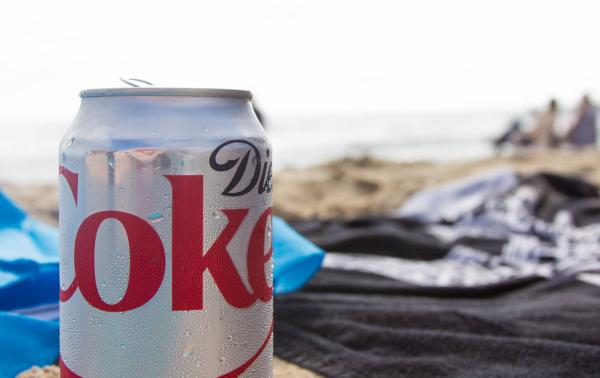Can sugar-free drinks help you lose weight? Proponents say “yes,” so long as they help create a calorie deficit. A growing chorus of critics, meanwhile, points to research suggesting that sugar substitutes might induce changes in brain activity or your gut microbiome that encourage overeating and thus weight gain. NPR reported recently, for example, that
The 'diet' in diet drinks may be a false promise for some soda lovers. True, they deliver the fizz and taste of a soda experience, without the calories. Yet, new research shows they also can leave people with increased food cravings. A study published recently in JAMA Network Open adds to the evidence that drinks made with sucralose may stimulate the appetite ...
The only meaningful way to settle this dispute is by examining how artificial sweeteners affect people in the real world. A systematic review and meta-analysis of the clinical evidence just published on the JAMA Open Network offers us a good starting point. The results confirm that consuming sugar substitutes poses very little risk and may lead to slight reductions in body weight and improvements in cardiometabolic health factors—as long as it helps reduce net energy intake.
What do the studies show?
The researchers evaluated 17 clinical trials involving 1,733 overweight or obese adults who were at risk of or had diabetes, 1341 women (77.4 percent) and 392 men (22.6 percent). Participants who consumed low- and no-calorie sweetened beverages (LNCSBs) instead of sugar-sweetened beverages (SSBs) lost a little over two pounds and experienced corresponding improvements in body mass index, body fat percentage, and liver fat. Conclusion:
“The evidence supports the use of LNCSBs as an alternative replacement strategy for SSBs over the moderate term in adults with overweight or obesity who are at risk for or have diabetes ...”
![]()
Figure 2: Substitution of Low- and No-Calorie Sweetened Beverages (LNCSBs) for Sugar-Sweetened Beverages (SSBs)
There are two other data points that support this conclusion aside from the primary analysis. First, most people in the National Weight Control Registry (NWCR) who shed their excess pounds and keep them off long-term consume sugar substitutes. If these sweeteners stimulated weight gain, we'd probably see evidence of that trend in the NWCR. Second, two clinical trials excluded from the present meta-analysis, because the participants were adolescents, showed that LNCSBs reduced weight gain in both normal weight and obese individuals over the course of 12 months.
Sugar-free drinks probably aren't harmful
Aside from their impact on body weight and other metabolic health markers, concerns about the safety of LNCSBs are common across the internet. None of the reviewed studies supported these fears. Only four trials reported adverse events—tiredness, mood swings, headaches, body aches, nausea, hospitalizations, and weight gain—although these weren't attributed to consuming the beverages being studied. “In all cases,” the reviewers wrote, “the adverse events were not observed, deemed to be unrelated to the intervention, or not severe enough to be of consequence.”
There's always a “but”
Meta-analyses combine the results of individual studies, but as epidemiologist Geoffrey Kabat has noted, this can yield misleading results if the papers are of varying quality or measure different exposures. This phenomenon may influence the current results to some extent. For example, the researchers reported that “inconsistency was present in the primary outcome of body weight across the substitutions of water for SSBs and LNCSBs for water and in several secondary outcomes across the 3 prespecified substitutions, resulting in downgrades for serious inconsistency.”
In other words, there is some uncertainty in the results. Apply as much salt as you will, as my colleague Dr. Chuck Dinerstein likes to say. But before you swear off Coke Zero, consider this important paragraph from the paper's conclusion:
"The findings in this study are in agreement with those reported in other systematic reviews and meta-analyses … Specifically, the findings that (1) reduced body weight, BMI, and body fat were associated with the use LNCSBs as a substitute for SSBs with caloric displacement and (2) neutral outcomes were associated with the use of LNCSBs as a substitute for water without caloric displacement are consistent with the results of other systematic reviews and meta-analyses of RCTs."
[1] For those of you eager to dismiss these results because of industry funding, please note that only four of the reviewed trials were funded exclusively by food companies; five were financed by a combination of industry and government grants, while the remaining eight were funded entirely by government agencies, nonprofits, and university sources. The review's authors acknowledged support from a variety of public and private sources.




